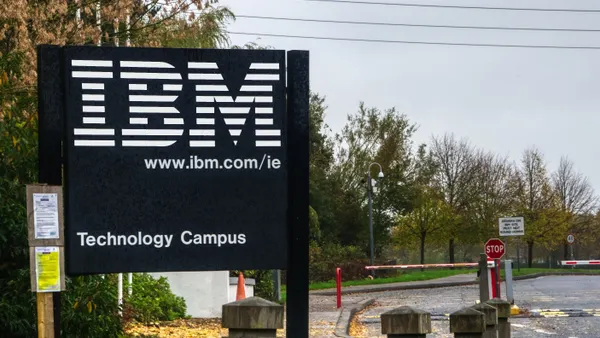Dive Brief:
-
IT unemployment rose for the second consecutive month as employers contended with a complex economy in August, according to a CompTIA review of U.S. Bureau of Labor Statistics data published Friday.
- Tech unemployment reached 3% in August, up from 2.9% in July, according to CompTIA. The national unemployment rate also increased to 4.3% last month. Despite the increase in joblessness, employers across the economy added 247,000 net new tech positions.
- “Unevenness in the data means acknowledging the employers and job seekers struggling with a multitude of challenges but also recognizing it is not all doom and gloom,” said Tim Herbert, chief research officer at CompTIA, in the report. “Hiring intent data continues to show employers pursuing tech talent across a range of disciplines, from AI and data science to tech support and cloud engineering."
Dive Insight:
After months of uncertain economic conditions and trade war concerns, the August jobs report reflects a complex picture for IT employment. Businesses are recalibrating modernization plans, implementing changes that directly affect hiring strategies.
Tech unemployment dipped again in August
Employers aren’t pulling back from growth, according to Ger Doyle, regional president, North America, at ManpowerGroup, an IT staffing firm. They're simply targeting it.
“In tech, the pivot is unmistakable,” Doyle said in an email. “Legacy IT roles are being replaced by AI and data infrastructure hiring,” he said, pointing to internal data that illustrates major demand growth for data scientist and architect roles.
Amid the ongoing deployment of AI tools, traditional IT roles are no longer the center of gravity, said Kye Mitchell, head of Experis U.S., a division of ManpowerGroup.
“Employers are now prioritizing talent that can architect the future of AI, data infrastructure and cybersecurity,” Mitchell said. “Despite a broader slowdown in IT hiring, we’re seeing extraordinary growth in highly specialized roles.”
CompTIA's data also shows increased employer interest in AI roles, as postings for jobs with AI skill requirements grew in August. Demand for AI talent has remained persistent since 2020, according to an Indeed report published in August, with some roles more than quadrupling in the past five years.
“Tech is cyclical like every industry,” said Mischa Fisher, economist and head of product analytics at Udemy, in an email. “Right now, there are early signs of thawing. Anecdotally we're noticing more hiring and more interest in expansion as teams anticipate growth in 2026.”















